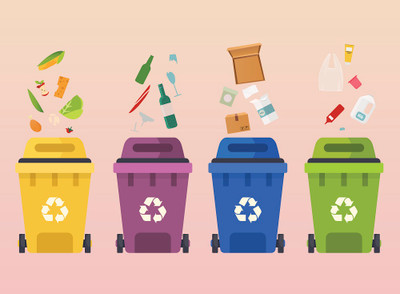What’s involved in going plastic-free?
Posted by The Wares Team on 11th Jun 2019
Barely a day goes by at the moment without a new story
hitting the headlines about the global climate crisis, and plastic pollution
forms a big part of that reporting. From 2 minute beach cleans to calls for a
ban on charity balloon releases, everyone is keen to get involved and do their
bit.
Occasional community clean-ups are, of course, a fantastic way to play a part
in changing the situation, but what if you want to take things further and
examine your own personal plastic consumption, with a view to cutting down on
the amount of single-use plastic you use, or going plastic-free altogether? In
today’s post, we take a look at how to start out on the road to a plastic-free
future.
What does plastic-free really mean?
The first thing to understand is that going plastic-free doesn’t necessarily
mean removing every plastic item from your home. Instead, it’s about avoiding
all forms of single-use plastic and minimising the purchase of other new
plastics wherever possible. Plastic items that can be reused over and over
again are not the main culprit when it comes to plastic pollution, but
single-use plastics, which are designed to be thrown away after just one use,
are what you are trying to eliminate by going plastic-free.
The other thing to think about is that most people’s dependence on single-use
plastic is long-standing and extensive. It may not be practical or realistic to
remove all single-use plastic from your life in one swift action. Instead,
build up a plan as to how to remove these plastics from your shopping choices
over a period of time. That way, you stand a much better chance of long-term
success.
Examine your shopping
Much of the single-use plastic we use arrives in our homes in our shopping
bags, so that’s where we need to look to make changes first. Consider finding
your local plastic-free grocery store and switch from plastic-wrapped goods to
loose alternatives wherever possible. In plastic-free stores, you take your own
containers and buy items such as pasta, rice, flour, sugar and coffee loose,
filling those containers you brought in. Once home, you can pour your loose
items into glass jars for kitchen storage, freeing up your reusable plastic
containers for your next shopping trip. It’s amazing how much plastic you’ll
avoid by shopping in this way.
Two more big single-use plastic culprits are yoghurts and sandwiches, which
many of us take for granted every day. It might take a little bit of effort,
but these too can be replaced with more eco-friendly alternatives.
First of all, it’s easy to get into the habit of making your own yoghurt every
day or two, to avoid buying all those mini pots. You’ll need some natural,
live-culture yoghurt to start off, but once you have made your first batch, you
can then use a portion of that for the next batch, and so on. Again, glass jars
are ideal for making yoghurt in, and they can be used over and over again. You
can flavour these with your homemade jam, honey or soft fruits.
As for sandwiches, ditching plastic-wrapped ones means committing to taking in
your own lunch to work each day. If you are wedded to the idea of a sarnie
every day, then invest in a reusable beeswax sandwich wrapper, to keep your
food fresh and protected. If you fancy something different for lunch instead of
a sandwich, try making your own layered salads. Take a clean Kilner jar and
layer in salad ingredients. Drizzle in some dressing and pop the lid on, and
hey presto, you have a healthy lunchtime alternative that looks as good as it
tastes!
Plastic-free in the
bathroom
Once you’ve got rid of as much single-use plastic in the kitchen as possible,
it’s time to look at the bathroom. Shampoo bars are now widely available in eco
stores and online, and these mean you can get rid of those shampoo and
conditioner bottles. The same goes for shower gel; simply switch to an invigorating
soap bar instead, making sure you only choose ones that are not packaged in
plastic. You could also try making your own bath salts and storing them in
glass jars on the bathroom windowsill for a decorative and eco-friendly touch.
Even your plastic toothbrush can be replaced with a bamboo one.
Using glass instead of
plastic
If you’re tempted to buy things made of plastic for storage, for gifts or for
any other reason, take a moment to consider whether you could use glass or
another material instead. Glass jars, for example, make excellent storage
containers and are great for creating unique, homemade gifts to give to friends
and family. A Kilner jar filled with homemade cookies makes a wonderful gift to
say thank you to a friend and a trio of glass jars filled with various homemade
jams or chutneys will be just as appreciated as a shop-bought, and
plastic-wrapped version.
Are you ready to go plastic-free? Share your stories via Twitter, Facebook and
Instagram!

